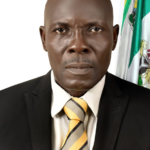*Outpatients Resort to Sleepovers to Access Scarce Services
Obiajulu Agu, Lagos
The National Orthopaedic Hospital Igbobi, Lagos (NOHIL) is barely limping along, as it contends with the exodus of a large volume of its personnel for better working conditions outside Nigeria.
In recent years, Nigeria’s health sector has suffered, and continues to suffer, from huge depletion of critical manpower fleeing abroad for more attractive conditions of service. The trend has been labeled “japa” syndrome in local Nigerian parlance.
Checks revealed that NOHIL is particularly hit by “japa” syndrome; its operations greatly hobbled by acute shortage of personnel across many of the departments and units. At the premier orthopaedic institution, which serves as a centre of the World Health Organisation (WHO), patients, who do not make the cut for the day’s booking to be registered as fresh patients or for such procedures as x-ray or physiotherapy or be attended to by doctors, routinely resort to passing nights within complex at the mercy of the elements.
Patients and their relatives or other caregivers, according to findings, opt for such arduous nights in the open as an effective strategy for minimising logistical expenditures and other costs of booking the names of patients early enough for their various appointments.
It was learnt that the worst-hit by acute personnel shortages is the Radiology Unit, which, as early as 7:00 am attains its daily count of 20 patients booking for x-ray, as any or all other persons reporting after that figure are firmly ordered to try out another day and subsequently dismissed.
It was observed, however, that staff of the hospital also indiscriminately smuggle in names of persons favoured based on familial or pecuniary relationships for X-ray services at the Radiology Unit.
There is also an x-ray centre operated besides that of the hospital by a private sector service provider, Crestview Radiology Limited, which was recently overwhelmed by huge demand when NOHIL’s x-ray machine broke down.
Notably, patients can only be attended to at the Crestview x-ray centre strictly based on request forms referrals endorsed by NOHIL doctors.
It was gathered that, in order to ensure that each of their patients get adequate care, physiotherapists at the Physiotherapy Unit have resorted to keeping the maximum number of patients they attend to daily at below 10.
Speaking under anonymity, a female outpatient, who is a resident of Ijoko in neighbouring Ogun State, lamented that she had suffered several misses while seeking to have her initial x-ray session. She confessed with a hint of a victorious smile that she was only able to have that initial x-ray, having risen and reported at the Radiology Unit at 4:30 am after she joined many others who did same in passing the night along the hospital’s corridors.
She disclosed that she had adopted the same strategy of sleeping over at the hospital in order to successfully keep up with the appointments for other x-rays and her physiotherapy sessions.
Explaining that bills for the various hospital services were high and already draining her purse, she noted that her finances, in the prevailing harsh economic conditions in Nigeria, had been dealt additional blows because she, until she settled for sleepovers at the hospital, been expending so much on transportation to cover all what turned out to be fruitless trips between her Ijoko, Ogun State residence and NOHIL.
Affirming to have eased so much of the stress on her purse by passing nights at the hospital in order to meet appointments next mornings, the woman said that she was actively passing on the very beneficial advise that someone offered her for others to follow to access services at the hospital more promptly while keeping their costs in check.
Several other outpatients, all under anonymity, had spoken in a similar vein of resorting to passing nights at NOHIL in order to cut costs in accessing services promptly.
Located along the arterial Ikorodu Road, NOHIL, which is projected to accommodate 450 patients, reportedly had started as a Military Rehabilitation Camp for prisoners of war returning from the Second World War.
Following the recognition by the Colonial Medical Services in 1945, the institution had become a medical establishment known as Igbobi Orthopaedic Hospital.
NOHIL had undergone a number of name changes, including from Igbobi Hospital to Royal Orthopaedic Hospital and onto its current name.
At various times between 1945 and 1977, the institution had come under the administration of the Federal Government and Lagos State Government. Since 1977 to date, however, the hospital has remained a Federal Government health institution.
In its “early days,” according to website of NOHIL, “the sphere of influence of the hospital extended to other parts of the West African sub-region, Central Africa and Angola.”
The hospital further stated that the facility was a repository of materials and resources for students during the same period.
In the present times, except the Federal Government takes urgent remediation steps to arrest the exodus of NOHIL’s personnel for greener pastures abroad, the hospital may very soon be rendered comatose.
Checks confirmed that the “japa” syndrome does not only cast a pallor on the bragging rights of NOHIL to the tag of “premier health institution”, but also poses an existential threat to the hospital.











